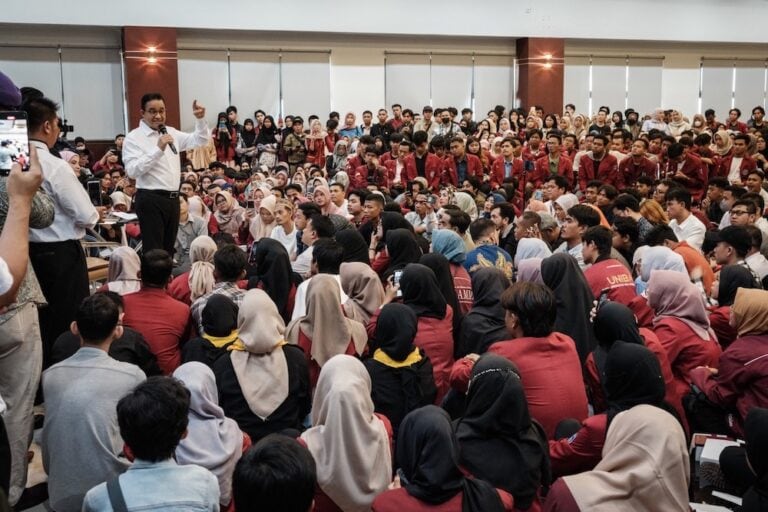A group of organisations have issued a statement raising a number of fundamental flaws in the Intelligence bill.
(AJI/IFEX) – 13 May 2011 – The following is a statement co-issued by the Alliance of Independent Journalists (Aliansi Jurnalis Independen/AJI), a SEAPA founding member based in Jakarta, Indonesia, with two other groups:
The Indonesian House of Representatives will soon enact the controversial draft Intelligence Law. Upon examination of the impact of this draft law on press freedom in Indonesia, we as representatives of the press from Indonesian Journalists Association (Persatuan Wartawan Indonesia/PWI), Alliance of Independent Journalists (Aliansi Jurnalis Independen/AJI) and Indonesian Television Journalists Association (Ikatan Jurnalis Televisi Indonesia/IJTI) would like to raise a number of fundamental flaws in this Intelligence bill.
First, the Indonesian intelligence agency is authorized to intercept private communication without the consent of the court. This is a threat to press freedom as the State intelligence agency can eavesdrop on private communication especially between journalists and their sources of information. This bill, if passed into law, opens the door for the intelligence agency to spy on journalists, clearly an abuse of power. This would mean a breach of the journalists’ obligation to protect the identity of their confidential sources.
Second, articles on restriction of information represent a threat to citizens’ right to information. Press Law no. 40/1999 guarantees journalists the freedom to seek, obtain and disseminate information. With restrictions to intelligence information, this draft law will potentially limit the rights and obligations of the press as guaranteed by the Press Law. This draft bill also contradicts the Openness to Public Information Law 14/2008 (enacted on 30 April 2008) which provides the right to obtain information from public bodies. Under Article 17 of this law, classified information is regulated.
Third, this law contains articles authorizing the State intelligence agency to detain persons under suspicion for seven days – a major threat to all citizens, including journalists. This article can be abused to detain members of the press who have information deemed by the State intelligence agency as being a threat to national security. Information, including that related to national security, is part of the everyday life of journalists. Detention should remain in the hands of law enforcement agencies like the police, not the State intelligence agency. Procedures prescribed under the Indonesian Criminal Code (Kitab Undang-Undang Hukum Pidana/KUHAP) and other criminal law procedures should be followed in regard to the issue of detaining persons.
We believe that the draft Intelligence Law should be formulated to control intelligence activities according to the intelligence agency’s authorized mandate. It should not legitimize actions that are in violation of the law. The Intelligence Law bill should be based on the principles of democracy, human rights and the spirit of the law with respect to the Constitution, Press Law and Openness to Public Information Act.
Signed,
1. Margiono, Chairman of Indonesian Journalists Association (Persatuan Wartawan Indonesia/PWI)
2. Nezar Patria, President of Alliance of Independent Journalists (Aliansi Jurnalis Independen/AJI)
3. Imam Wahyudi, Chairman of Indonesian Television Journalists Association (Ikatan Jurnalis Televisi Indonesia/IJTI)


